Learning doesn’t have to be restricted to a boring and systematic schedule. There are many types of educational toys for your children to choose from that will make even the dullest subjects fun and interesting. Here are some of the top learning games and toys for kids that your young one will enjoy.
Learning Games And Toys For Kids To Help Motor Development
Jenga
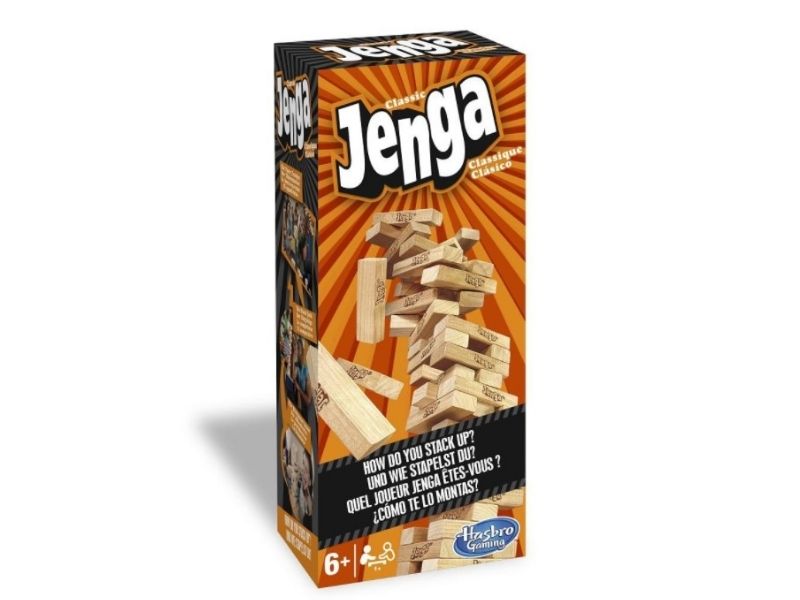
Suitable for: Ages 6 and above.
This learning game for kids takes building blocks to a whole new level. However, instead of only assembling the pieces together, your child will be competing with you to see which block either of you remove will send the tower crashing. Aside from being suspenseful and exciting, Jenga will also help in building children’s hand strength and improve their hand-eye coordination.
Hopscotch
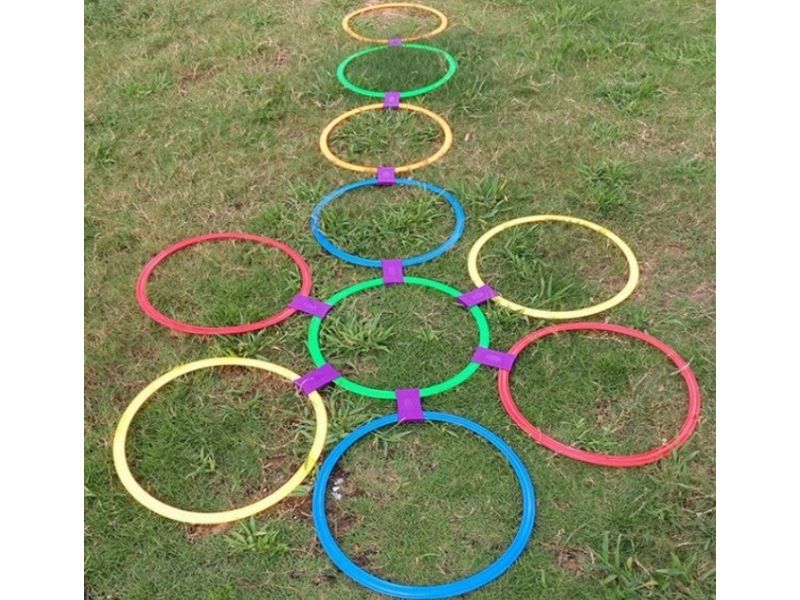
Suitable for: Ages 3 and above
Hopscotch is a great learning game for your kids to build their gross motor skills. It used to be a military training exercise to improve soldiers’ footwork before it became the well-known children’s game it is today. It’s an active game that will keep their body moving, strengthen their leg muscles, and refine their sense of balance. Additionally, as they are hopping from one foot to the other, your child will also be building their bilateral (both sides of their body) coordination and foot-eye coordination. These are specific skills that will help them carry out simple daily activities, such as walking, dressing, or climbing up the stairs.
Learning Games To Enhance Your Child’s Literacy
My First Making Words Snap
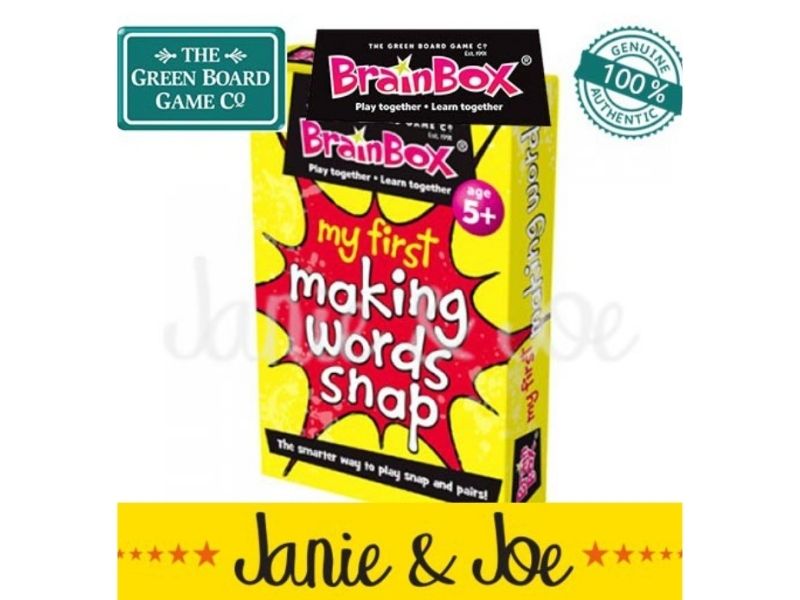
Suitable for: Ages 5 and above.
Spelling exercises can be a pain to get your child to partake in. They usually consist of repetitive writing until they’ve gotten the ‘Word of the Day’ drilled into their minds. So, rather than dealing with their temper tantrums, engage their interest with this card game instead.
In this game, your child has to snap the matching cards together to make a comprehensible word. It’s a fun way to encourage your child to expand their vocabulary as they learn how to read and spell. Plus, they won’t even realise that they’re learning in the process.
Vocabulary Spelling Game
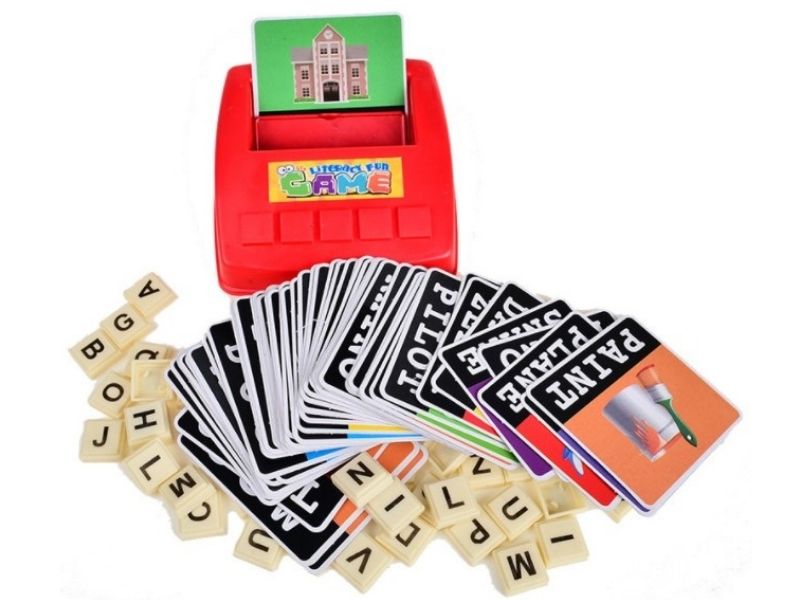
Suitable for: Ages 4 and above.
This literacy learning game for kids requires you to find the small word blocks to spell out the word in the image. It has three levels of difficulty (the easiest being 3 words and the hardest being 5) to encourage your child to make better progress with their reading and spelling. Furthermore, pictures are a helpful method in getting your children to understand the meaning of the words a bit more.
This way, they’ll easily remember the words they’ve learned and will be able to associate them with the subject matter. For example, if they’ve learned how to spell the word ‘apple’ without the image, they may know the word, but won’t necessarily know what an apple looks like. However, with the image on the card and the spelling below, your child will now be able to recognise an apple when they see one.
Learning Games And Toys For Kids: Counting/Mathematics
Magnetic Fishing Math Game
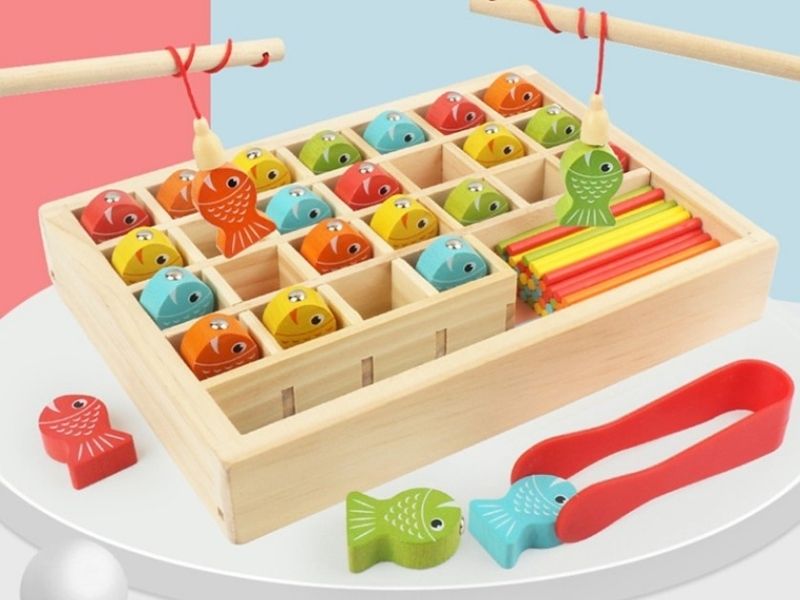
Suitable for: Ages 1 to 6
If teaching your child how to spell was hard enough, tackling maths can be a much bigger nightmare. Who likes to memorise their timetables? Take a different approach and try this fishing math learning game instead. It’s great for teaching kids the fundamentals of numerics in a fun and engrossing way.
There are 25 pieces separated between 20 numbers and 5 operational symbols, each of which will be printed to the fish’s back. Your child will then have to pick up the fish with their fishing rod till there’s enough to create a mathematical problem. Afterwhich, they’ll have to fish for their answer again once they’ve solved the problem. Not only will this build their problem-solving skills, but the bright colours will also improve your child’s colour recognition at an early age.
Ball Toss Game
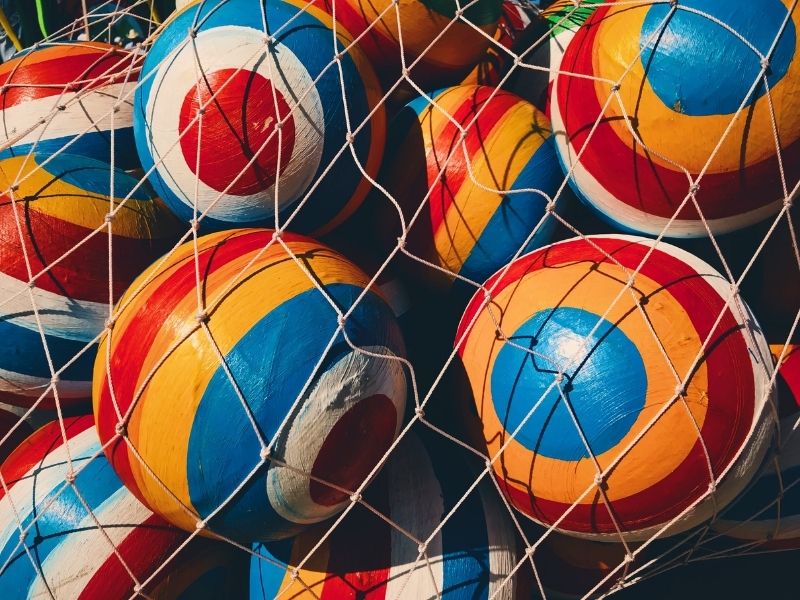
Suitable for: Ages 5 and above.
You can even take learning math outside to your backyard or your neighbourhood park. Ball tossing will make for an excellent learning game for your kids! It’s easy to execute and leaves room for any mental calculations later on.
Line up five baskets in a row, then take a manila card and write down a number for different point systems. Paste the cards on each basket, and then mark a cut-off line where players can’t cross when tossing the ball. Take turns throwing the ball into the baskets, and whoever scores the most number of goals and points wins. This will teach your child the importance of keeping track of their scores while strengthening their additional skills.
Make Studying Science Fun For Your Kids With Interesting Learning Games
DIY Volcano Science Kits
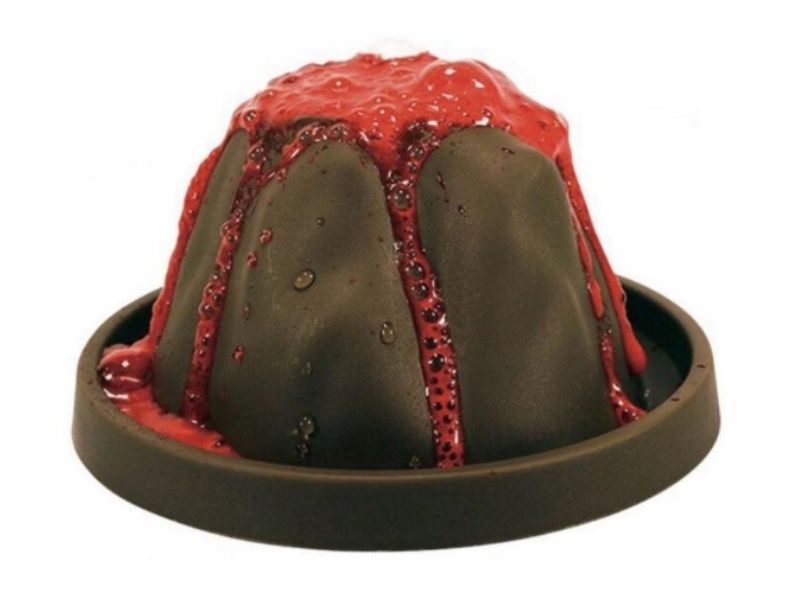
Suitable for: Ages 7 and above.
It’s too dangerous to visit an actual volcano, but this DIY volcano science kit will certainly make do. This learning game provides a safe alternative to teach your kid the whole process of a volcano eruption. Plus, it will also give your child the opportunity to mix their first set of chemicals. The mixture will then successfully cause the volcano to bubble and erupt. Throughout the experiment, take the time to carefully explain the science behind it. This will help your child fully comprehend the theory rather than get carried away with their playtime.
Static Electricity Balloon Game

Suitable for: Ages 7 and above.
This fun little activity will teach your kids about static electricity. All you need is a balloon, an aluminium can, and a whole lot of static. The objective of the game is to see who can get their can to the finish line first. However, you can only use the balloon and only the balloon, to move the can. No other methods are allowed. Your child will then have to create enough electric charges in the balloon either by rubbing it on their clothing or hair. In doing so, static electricity is formed. This will then act as a form of a makeshift magnet and pull the can towards the balloon without even touching it.
Make Learning Fun With The Right Learning Games For Kids
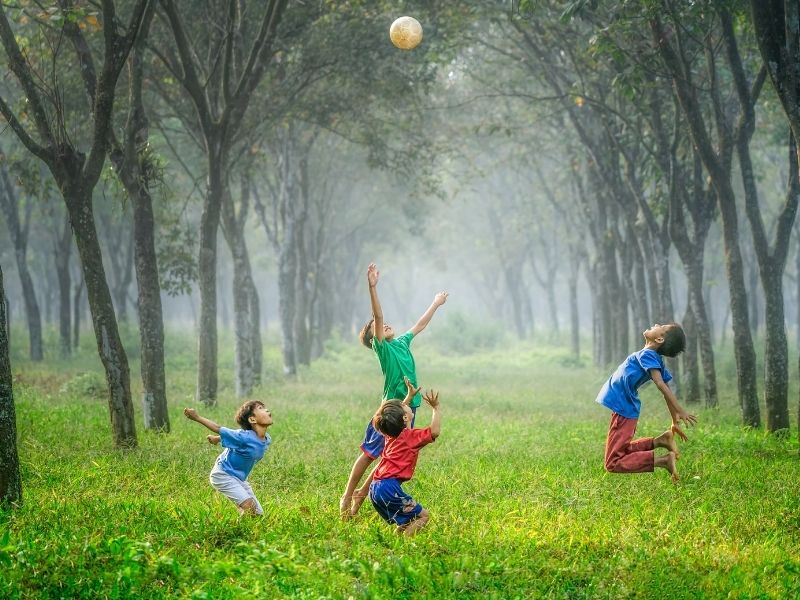
If you’ve noticed your child struggling with a particular subject, then alter your method of teaching to fit their learning style. There’s no one way of learning, and each kid absorbs information differently. So, find a method that works best for your child and stick to it. We hope this list has given you ideas to make learning fun and enjoyable for your kids. For more educational toys, check out our other article on cooking toys for kids.

